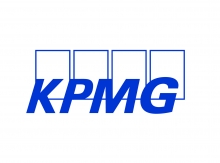There is a growing consensus that business should bear a greater responsibility towards the environment and pay closer attention to the "externalities" that its activities create.
Non-governmental organisations, customers, governments and investors have all begun to scrutinise the activities of business more carefully and demand a more responsible and sustainable approach. In response, the business community has implemented corporate social responsibility programmes with the aim of improving its social and environmental behaviour and portraying itself as a more responsible member of society.
External pressure to improve environmental performance has coincided with a trend towards increased complexity in business. A successful company now depends on an intricate web of global supply chains and partner networks, while an international reach—through alliances, acquisitions and greenfield investments—has become a prerequisite for growth.
Given these two parallel trends of greater business complexity and scrutiny into environmental performance, it was only a matter of time before companies would seek a more rigorous way of identifying and assessing their environmental liabilities, and of managing the risks associated with them in a more coherent manner. Companies now seek greater visibility not just of their own activities, but of those that take place in countries to where they have outsourced manufacturing, logistics or assembly. In addition, as organisations increasingly seek overseas acquisitions to further expansion plans, there has been a growing realisation of the need to scrutinise environmental performance of target companies more carefully as part of their due diligence processes.
But while the general trend is towards a more rigorous evaluation of environmental risk, this is by no means universal. Many companies have only just embarked on this journey and have a long way to go before they reach their destination. In order to assess the extent to which environmental risk management has become part and parcel of modern business strategy, the Economist Intelligence Unit conducted a survey of senior professionals with responsibility for risk on behalf of ACE, KPMG, SAP and Towers Perrin. From this survey, a number of key findings emerge:
- Environmental risk management is frequently managed in an ad hoc fashion.
- There is no clear consensus about who should be responsible for environmental risk.
- Many companies conduct strategic activities without a formal assessment of environmental risk.
- Respondents see compliance with environmental legislation as a key strength.
- Managing environmental risks associated with suppliers and partners is a key area of weakness.
- Better reputation with customers and investors is seen as the main benefit of environmental risk management.
- Climate change is an opportunity as well as a risk.
- Lack of certainty—about the impact of environmental liabilities and the future scope of legislation—are the main obstacles to effective environmental risk management.










